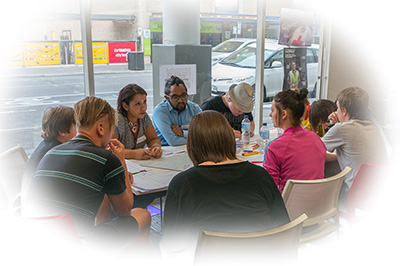 The Child Protection Systems Royal Commission will result in recommendations to strengthen the state’s response to children and families in crisis and to children in state care. Judging by the number of written submissions (331) there is optimism about what will be achieved.
The Child Protection Systems Royal Commission will result in recommendations to strengthen the state’s response to children and families in crisis and to children in state care. Judging by the number of written submissions (331) there is optimism about what will be achieved.
The Office of the Guardian (GCYP) emphasised what children and young people have said about their experience and children’s views about what works best for them. The submission covers three broad areas of family support, out of home care and opportunities for children in care.
These areas were replicated in the GCYP and Create consultation with 35 children and young people for the Commission staff to hear directly from young people about their views. One young person echoed what many had to say, with “the children must be heard – in their own words.”
The GCYP submission suggests strengthening the legislative requirement for participation of children in making decisions, with an over-arching section in the Act.
The submission on out of home care leads off with the view: If my family cannot safely care for me, find me a second family, not as a replacement but to give me that loving home. The growth in numbers of children requiring guardianship services and out of home care has tested and thwarted the best intentions of everyone working in this area. The out of home care system is not working as it should, evidenced by the expansion of residential care for children of all ages and the high use of interim placements. No matter the quality of the care, these are not replacements for loving families and homes.
Consistent with recommendations made previously, the Guardian suggested:
- An out of home care plan to ensure that supply better matches demand and anticipates changes.
- An accompanying plan for workforce development, quality improvement and independent monitoring.
- Closure of the remaining six large residential facilities.
- Growth in therapeutic foster care to reduce the use of residential care.
- Social workers supported to visit children every month, which will require workload analysis in the first instance and probable consequent changes to distribution of resources.
- A community visiting program for children in the first few years of being in care, when instability is at its highest.
It is easy to stand on the sidelines and see what needs to be done. It is a hundred times harder to change the game plan in the midst of such pressure. The focus though on what can be done, rather than on what has gone wrong, is the tone of discussion needed now.
For other related topics and ideas see GCYP Submission to SA Royal Commission Child Protection Systems.
